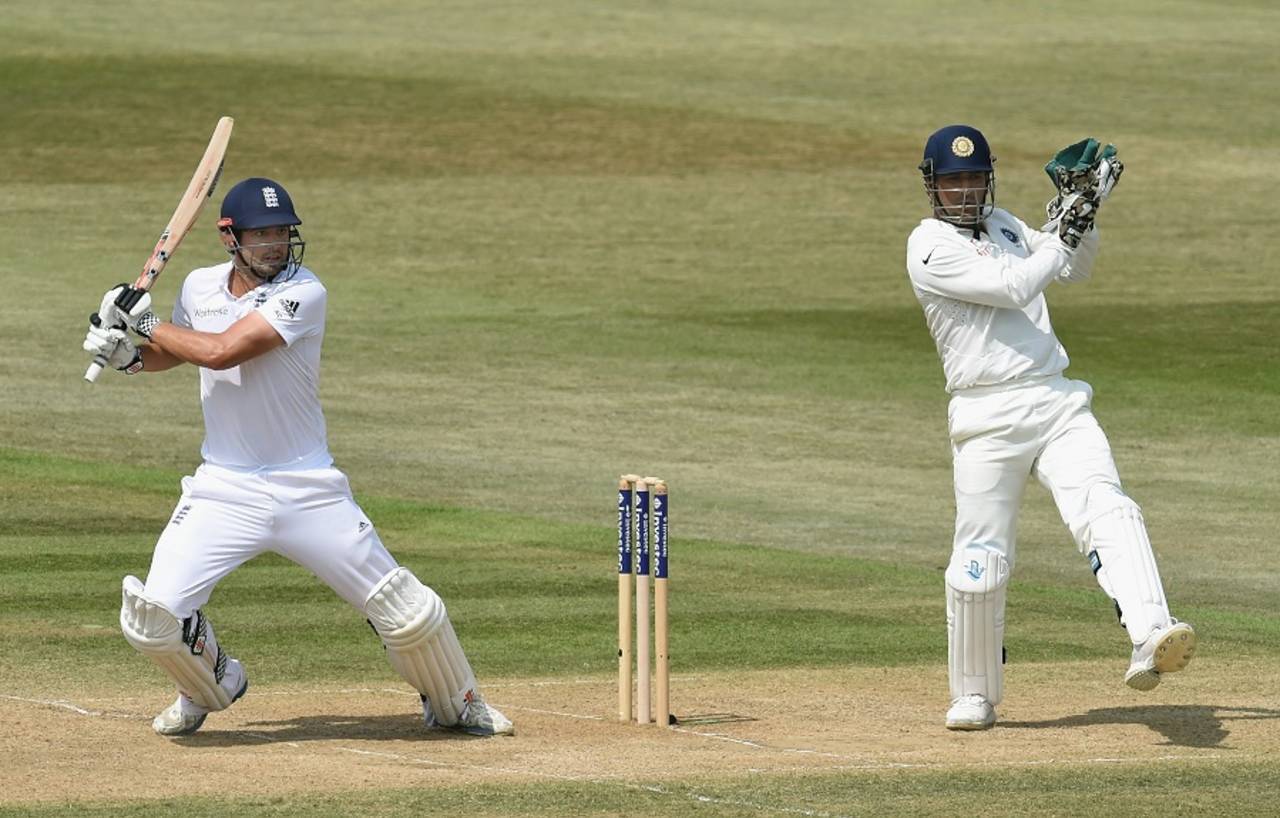How exactly does one 'lead by example'?
A captain needs to do enough as an individual to retain respect and control, but exceptional performances may not result in even greater influence
Alex Bowden
01-Aug-2014

Are runs from a captain somehow more inspiring for the other players? • Getty Images
Leading by example. Does it really amount to much? I'm not sure how much store I put in it, but maybe that's because I'm not much inclined to follow anyone. I always seem to opt for being lost on my own rather than being led where I should be going by someone else.
My suspicion, therefore, is that "leading by example" is merely descriptive of the captain having played well, rather than being indicative of his having made any greater contribution beyond that. Is it just something people say when whoever's played well also happens to be the captain?
The term has been used a lot in recent times on those rare occasions when someone has felt moved to defend Alastair Cook's captaincy. He may not be tactically sophisticated, they say; he may not be a great orator; and he may sometimes appear to run out of ideas on the field; but what he can do is lead by example. The Test series victory in India is pointed at as being evidence of this and when he recently made 95 in the third Test against the same opposition, it was also taken by a few as somehow reinforcing his captaincy credentials.
But does this make much sense? Whether he should be doing the job or not, I don't see how Alastair Cook scoring runs has very much at all to do with his captaincy - they're different things. Run scoring is arguably the aspect of the job that has the least to do with leadership. Had he made all those runs in India and not been captain, he would have still been setting the tone for the batsmen who followed, and had he scored that 95 in Southampton and not been captain, he would have still put his side into a strong position.
One of the main pillars supporting the notion of leading by example is that runs from the captain are somehow more inspiring for the other players, but that implies some sort of inspiration shortfall in the first place. It's not like they're all lounging around a warehouse, slacking off. In that situation, the manager might feel the need to come in and get his or her hands dirty, picking and packing or whatever so that the rest of the workforce might feel guilty and start doing something. But England's batsmen are surely going to do their damnedest to score runs regardless of what the captain might achieve?
Maybe seeing a senior player fail would have an impact on newcomers' confidence, but someone like Cook doesn't cease to be a senior player just because he's not captain. Are the dressing-room shock waves really so much greater when Cook the captain fails versus a non-captaining Cook? The latter is not just an opener, setting the tone, but also one of the most experienced batsmen England has ever produced. He's a central figure anyway.
You can lead by example purely as a batsman - particularly an opening batsman - but this is a practical thing, rather than having anything to do with nebulous notions of passion and inspiration. If there's something worth following, it is a player's methodology where runs have been scored in difficult conditions. In this regard, it's obvious that younger players can learn from senior batsmen whether they're captain or not. Practical lessons don't gain in validity because of the teacher's job title.
That isn't to say that things don't work differently for captains, however, for it can be hard to govern from a position of weakness. It's not easy to criticise others when you're failing yourself - and criticism does of course fall under the captain's remit from time to time. Similarly, a "do as I say, not as I do" sort of attitude is liable to result in disloyalty, if not open rebellion.
This results in a lower threshold for performance and behaviour. A captain needs to do enough as an individual to retain respect and control, but exceptional performances don't result in even greater influence still. If you can keep people onside and speak from a position of relative strength, you are then in a position to lead. In essence, performance is an entry requirement, not a facet of the captaincy itself.
Even memorable "leading by example" innings such as Graeme Smith's twin double-hundreds in England fit with this, for they came in Smith's third and fourth Tests in charge. As a very young captain, not yet established in the team, he needed to do more than most to prove his worth to a coterie of older players. Once established, the primary value of any good performance was then purely and simply in the runs scored.
Inspirational, spirit-lifting qualities may result from any individual performance, but whether or not the player in question is captain seems of little significance. As a consequence, if all a leader brings to the job is "leading by example" then those in charge should perhaps think about moving them to the role of "talisman" before letting someone better qualified get on with all the practical stuff.
Alex Bowden blogs at King Cricket